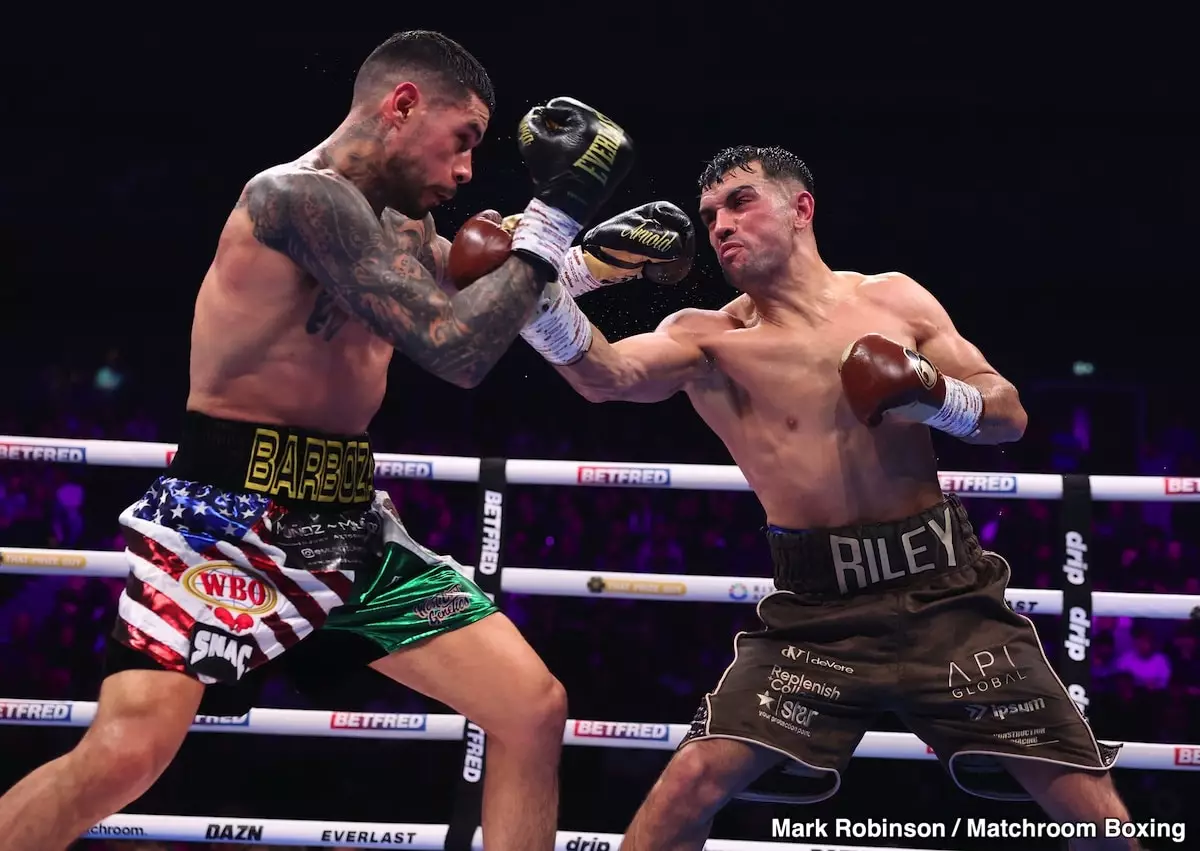Manny Pacquiao, an emblem of boxing greatness, is drawing mixed reactions as he gears up for a highly debated return to the ring at the age of 46. While many fans admire his unwavering spirit and legendary status, voices within the boxing community, including Jamie Moore, a seasoned trainer, express concern over the implications of such a comeback. The crux of the matter revolves around the question of whether an icon like Pacquiao should risk his legacy by competing against younger fighters in a sport notorious for its brutality.
Jamie Moore’s Perspective: Respect Versus Ambition
Jamie Moore’s dual position as a trainer and former fighter places him in a unique dilemma. He aims to secure a world title shot for his charge, Jack Catterall, yet he grapples with the ethics of placing Catterall in the ring against a venerated opponent like Pacquiao. Moore’s respect for “Pac-Man” complicates his professional ambitions. In his candid assessments, he acknowledges Pacquiao’s advanced age and the dangers that accompany such a comeback, stating, “I really don’t see Manny beating Mario Barrios.” His outlook paints a picture of a trainer torn between the thrill of historic matchups and the safety of his fighter.
Moore’s insights provide an essential critique of the sport’s culture, which often idolizes fighters to the point of encouraging them to take unnecessary risks. The passion for boxing should not overshadow common sense, particularly when the stakes include physical well-being. The harsh realities of aging athletes competing in a young man’s sport should provoke serious conversations about longevity, legacy, and safety.
The Irony of Pacquiao’s Situation
If Pacquiao manages to secure victory over Mario Barrios, the irony lies in his potential to hold a title against a backdrop of doubt regarding his condition and capabilities. Would he be willing to defend that title against an ambitious young fighter striving for recognition? While negotiations for dream matchups against other promising names like Gervonta “Tank” Davis are intriguing, the fight against a contender with less name recognition, such as Catterall, raises pertinent questions about commercial viability versus moral obligation.
Pacquiao’s resurgence could arguably provide additional opportunities for younger fighters, but the price paid for such opportunities is steep. Many could see this as an exploitation of an ageing champion’s reputation as opposed to a genuine sporting contest. A narrative is emerging where legacy appears to trump prudence, a disconcerting reality that Moore elegantly highlights.
Catterall’s Position: A Fight of Honor or Risk?
For Jack Catterall, facing Pacquiao would undeniably be a career milestone, potentially elevating his profile in the boxing world. Yet, the looming uncertainty of what Pacquiao could bring to the ring—potentially exposing Catterall to a risk that transcends sporting competition—adds a layer of complication. Would a victory against a waning superstar hold the same weight if critics argue that Pacquiao was unfit to fight?
It is vital to understand how this dynamic affects the psyche of younger athletes. Catterall, already feeling the pressure of his previous loss and the anticipation for his upcoming match, must navigate the weight of expectation that comes with the prospect of stepping into the ring with Pacquiao. It highlights a systemic issue where the legends of the sport can overshadow the ambitions of rising stars, imploring the next generation to probe deeper into their motivations and the true meaning of victory.
The Need for Accountability in a Dangerous Sport
The discourse surrounding Pacquiao’s return underscores an essential need for accountability within boxing. Trainers, managers, and promoters alike should prioritize safety and ethics over financial gain or nostalgia. Amidst the adrenaline and glory that encompass the sport, it is crucial to reaffirm that fighters’ health should never be secondary to spectacle.
Boxing has a historical narrative filled with tragic stories stemming from the sport’s dangerous nature, and allowing legends to fight beyond their prime could perpetuate this cycle. As the boxing community contemplates Pacquiao’s impending fight, it’s time to confront uncomfortable questions about the responsibilities owed to athletes, their safety, and the preservation of boxing’s integrity—questions that Jamie Moore and others are bravely bringing to the forefront.

